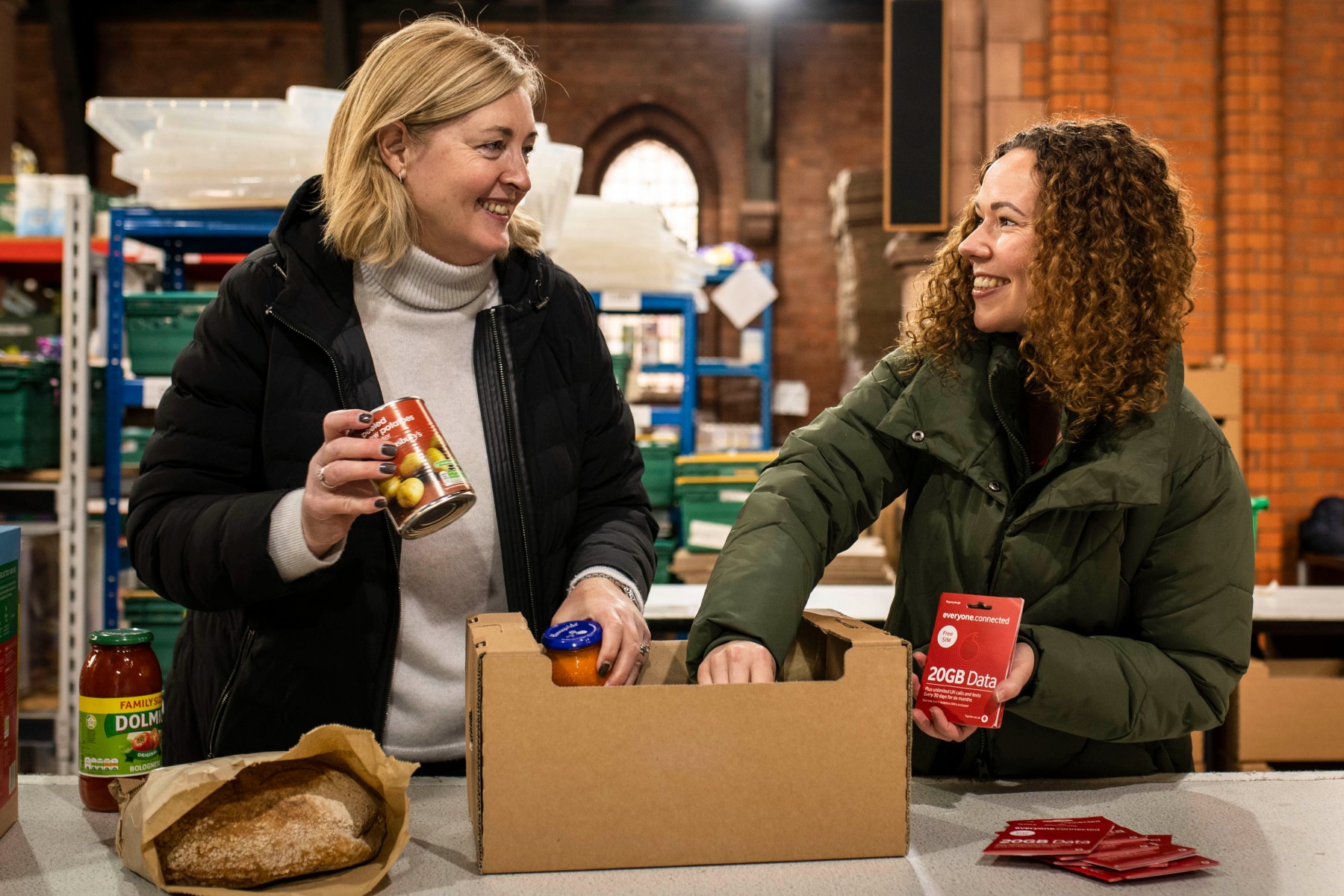
Two small businesses - Little Moons and Patch Plants - explain how important technology has been in keeping them connected to their customers and communities during the coronavirus pandemic.
The ability to connect closely with their customers and communities has always been one of the qualities that sets small and medium-sized businesses apart from larger organisations.
But with social distancing rules in place, how have they been coping during lockdown?
We caught up with a couple of small firms – Patch Plants and Little Moons – to find out.
Connecting with customers online helped Little Moons build a dedicated following for their Japanese mochi deserts, says co-founder Vivien Wong, who founded the business with her brother Howard in 2015.
“Technology has been fundamental for the business,” says Vivien. “Channels like social media have been amazing for allowing people to discover us.”
And because Little Moons had such a good social media presence already, the Covid-19 lockdown hasn’t disrupted things unduly, she says.
Staying in touch with their customers maintained loyalty, says Vivien. Businesses that only interact with their customers through physical stores have obviously been at a huge disadvantage during lockdown.
But she advises companies to ensure that their online messaging and marketing is “pandemic-conscious” – that is, relevant and sensitive to the current situation. That way, you can maintain and even cement your relationship with customers, providing a valuable way to connect as the world re-opens.
Digital gardeners
For Patch Plants, a digital presence has helped them advertise gardening to an underserved audience: millennials, says chief executive Freddie Beckett.
“The gardening industry has never really focused on this new, emerging generation of millennials,” he says.
“They’ve chosen to focus on, for example, older gardeners who live in the suburbs or countryside. But that doesn’t mean that you can forget about a younger group of people who also need nature in their lives.”

Credits: Patch Plants
Patch Plants has used an online delivery site to engage its digitally-savvy audience with gardening – supporting a connection with nature that has been especially valuable for many during the Covid-19 restrictions. As a result, the company has seen a 500% increase in sales as people flocked online to purchase plants to brighten up their indoor spaces and gardens during lockdown.
Similarly, Little Moons is hoping a new e-commerce site launching in August will give its customers more choice. Vivien says that “supermarket shelf space is limited, and we have two flavours there. But so many people want to try all 14 of our flavours.
“So we think our new direct-to-consumer channel will allow us to give our consumers what they’re looking for.”
Reaching new customers
As a smaller business, having a digital e-commerce presence – potentially alongside physical premises – is critical these days. It’s what customers expect. Not only can you serve your customers more efficiently, offering them more choice, but you can also reach new customers and expand, our business entrepreneurs believe.
And creating strong online communities, using social media groups, forums and even virtual events, is a great way to build brand loyalty and give customers space to share their thoughts and feedback on your services.
A business that learns from its customers is far more likely to grow.
Caring collaboration
In the current situation, it’s been just as important for smaller businesses to stay connected with colleagues as much as customers.
“We use dozens of collaboration tools to help us with communicating and working together,” says Freddie.
“We wouldn’t be able to do what we do without all the tools that we use.”
Vivien at Little Moons agrees: “Connectivity has been so crucial over this period. There are so many different tools to use, and with all of them combined, we actually think it’s really doable.
“Technology has made this crisis a lot easier to deal with.”
Collaboration technology has also been important in caring for staff – many of whom may have been struggling emotionally with the isolation and lack of freedom during lockdown.
And building a community of other small businesses has been important, too, Vivien believes.
“We’ve seen just how friendly and supportive the brands are. There’s a close-knit community of people really willing to lend their time and advice,” she says.
So for Little Moons and Patch Plants, connectivity has been the life-blood of the business, helping them weather the coronavirus storm.
• To hear more about how small businesses can connect with their communities, register now for Vodafone’s webinar ‘Business Unusual: The Power of Community’ on Tuesday 14 July at 12pm.
And for more from Patch Plants and Little Moons, listen to the full Business Unusual podcast interviews here.
![stock image of a refuse collector and a wheelie bin in front of a bin lorry [Adobe Stock] stock image of a refuse collector and a wheelie bin in front of a bin lorry](https://www.vodafone.co.uk/newscentre/app/uploads/2024/07/Garbage-Removal-Man-Adobe-Stock.jpg)

![Front view woman and man wearing sunglasses [Adobe Stock] cropped edited stock image of a woman and man, both wearing sunglasses, taking a selfie using a smartphone while posing by the waterside](https://www.vodafone.co.uk/newscentre/app/uploads/2024/07/Front-view-woman-and-man-wearing-sunglasses-Adobe-Stock-cropped-edited.jpg)


![Young woman waiting for job interview indoors [Adobe Stock] stock image of a young woman waiting for job interview indoors](https://www.vodafone.co.uk/newscentre/app/uploads/2024/06/2-Young-woman-waiting-for-job-interview-indoorsAdobe-Stock.jpg)



![black and white photo of a girl's face with smoke [Adobe Stock] an AI-generated stock image of a girl's face partially covered in smoke](https://www.vodafone.co.uk/newscentre/app/uploads/2024/05/black-and-white-photo-of-a-girls-face-with-smoke-Adobe-Stock.jpg)